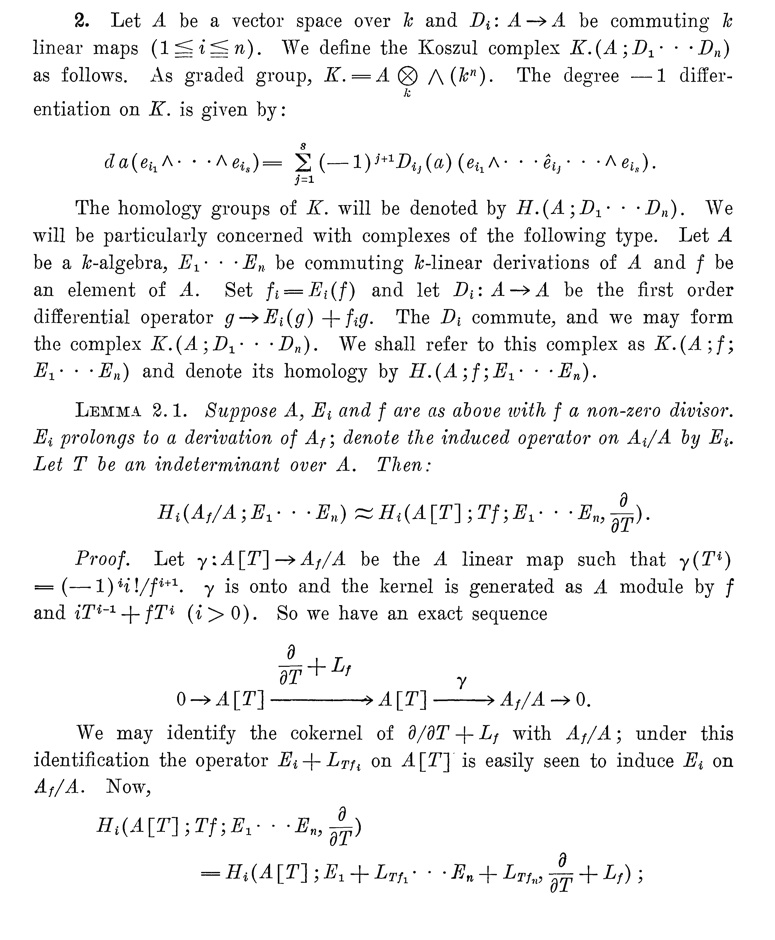I'd really like to understand the proof that Paul Monsky wrote about the finiteness of the de Rham cohomology of algebraic varieties. I'd like it very much because it seems to explain in concrete terms some of Dwork's deformation theory and it may help me to proceed to concrete computations.
MR301017 — Monsky, P. “Finiteness of de Rham cohomology”. Amer. J. Math. 94Amer. J. Math. 94 (1972), 237–245.
Unfortunately, I'm stuck quite early in the proof, lemma 2.1 in fact. If I may, since the paragraph I'm stuck with is short and self-contained, let me show it to you.

alt text http://s7.postimage.org/ib2cs7chn/monsky.jpg (the last words are missing, they say : “the lemma follows”.)
I think I'm OK with every single word of this extract, however, I don't understand why a proof followfollows...
In fact, I don't even understand why this lemma can conceivably be true... Indeed, its says that two Koszul homology are isomorphic, but the first one is builltbuilt with $n$ operators whereas the second is built with $n+1$ operators, so that the $H_{n+1}$ of the first is always zero but the $H_{n+1}$ of the second may be non zero, a priori.
The two questions I'd like to ask you are :
- Why am I wrong about the $H_{n+1}$ ?
- Why does “the lemma follow” ?
Thank you very much !
